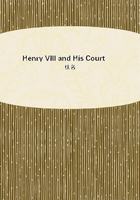
第47章 "LE ROI S'ENNUIT."(2)
The king, who was an extraordinary eater, silently beckoned his suite to take their places at the table, after he had seated himself in his gilded chair. With grave and solemn air he then received from the hands of the master of ceremonies the ivory tablet on which was the bill of fare for the day. The king's dinner was a solemn and important affair. A multitude of post-wagons and couriers were ever on the way to bring from the remotest ends of the earth dainties for the royal table. The bill of fare, therefore, to-day, as ever, exhibited the choicest and rarest dishes; and always when the king found one of his favorite ones written down he made an assenting and approving motion of the head, which always lighted up the face of the master of ceremonies like a sunbeam. There were birds' nests brought from the East Indies by a fast-sailing vessel, built specially for the purpose. There were hens from Calcutta and truffles from Languedoc, which the poet-king, Francis the First of France, had the day before sent to his royal brother as a special token of affection. There was the sparkling wine of Champagne, and the fiery wine of the Island of Cyprus, which the Republic of Venice had sent to the king as a mark of respect. There were the heavy wines of the Rhine, which looked like liquid gold, and diffused the fragrance of a whole bouquet of flowers, and with which the Protestant princes of Northern Germany hoped to fuddle the king, whom they would have gladly placed at the head of their league.
There, too, were the monstrous, gigantic partridge pastries, which the Duke of Burgundy had sent, and the glorious fruits of the south, from the Spanish coast, with which the Emperor Charles the Fifth supplied the King of England's table. For it was well known that, in order to make the King of England propitious, it was necessary first to satiate him; that his palate must first be tickled, in order to gain his head or his heart.
But to-day all these things seemed insufficient to give the king the blissful pleasure which, at other times, was wont to be with him when he sat at table. He heard John Heywood's jests and biting epigrams with a melancholy smile, and a cloud was on his brow.
To be in cheerful humor, the king absolutely needed the presence of ladies. He needed them as the hunter needs the roe to enjoy the pleasure of the chase--that pleasure which consists in killing the defenceless and in declaring war against the innocent and peaceful.
The crafty courtier, Earl Douglas, readily divined Henry's dissatisfaction, and understood the secret meaning of his frowns and sighs. He hoped much from them, and was firmly resolved to draw some advantage therefrom, to the benefit of his daughter, and the harm of the queen.
"Your majesty," said he, "I am just on the point of turning traitor, and accusing my king of an injustice."The king turned his flashing eyes upon him, and put his hand, sparkling with jewelled rings, to the golden goblet filled with Rhenish wine.
"Of an injustice--me--your king?" asked he, with stammering tongue.
"Yes, of an injustice, inasmuch as you are for me God's visible representative on earth. I would blame God if He withdrew from us for a day the brightness of the sun, the gorgeousness and perfume of His flowers, for since we children of men are accustomed to enjoy these glories, we have in a certain measure gained a right to them.
So I accuse you because you have withdrawn from us the embodied flowers and the incarnate suns; because you have been so cruel, sire, as to send the queen to Epping Forest.""Not so; the queen wanted to ride," said Henry, peevishly. "The spring weather attracted her, and since I, alas! do not possess God's exalted attribute of ubiquity, I was, no doubt, obliged to come to the resolution of being deprived of her presence. There is no horse capable of carrying the King of England.""There is Pegasus, however, and in masterly manner you know how to manage him. But how, your majesty! the queen wanted to ride, though she was deprived of your presence thereby? She wanted to ride, though this pleasure-ride was at the same time a separation from you? Oh how cold and selfish are women's hearts! Were I a woman, Iwould never depart from your side, I would covert no greater happiness than to be near you, and to listen to that high and exalted wisdom which pours from your inspired lips. Were I a woman--""Earl, I opine that your wish is perfectly fulfilled," said John Heywood seriously. "You make in all respects the impression of an old woman!"All laughed. But the king did not laugh; he remained serious and looked gloomily before him.
"It is true," muttered he, "she seemed excited with joy about this excursion, and in her eyes shone a fire I have seldom seen there.
There must be some peculiar circumstance connected with this ride.
Who accompanied the queen?"
"Princess Elizabeth," said John Heywood, who had heard everything, and saw clearly the arrow that the earl had shot at the queen.
"Princess Elizabeth, her true and dear friend, who never leaves her side. Besides, her maids of honor, who, like the dragon in the fable, keep watch over the beautiful princess.""Who else is in the queen's company?" inquired Henry, sullenly.